St. Dymphna Pendant
$5.00
The story of St. Dymphna begins in 7th-century Ireland, where her father, Damon, was one of many minor kings. Dymphna took a vow of chastity and devoted her life to Christ when she was 14. Soon after, her mother died and her father’s deep grief led to his mind being disordered. He became obsessed with the idea of marrying his daughter to replace his wife. When Dymphna learned of his intention she fled with her confessor, Gerebernus, ending up in the Low Countries, in the town of Gheel (modern Geel, Belgium).
Dymphna and Gerebernus settled themselves to charitable endeavors, but in a remarkable piece of forensic numismatics, her father traced them through the Irish coins they were spending to support the poor and sick in Gheel. He followed them, intending to impose his desires, but his daughter and her spiritual advisor resisted. Damon’s soldiers struck down Gerebernus and Damon himself cut off his daughter’s head.
In the mid-14th century Geel built a church honoring Dymphna. It became an important pilgrimage place where those suffering from mental illness sought the assistance of the saint. (This continues to be true today; read more about the town’s ongoing tradition of caring for the pilgrims in private homes.)
Our pilgrim sign is based on a badge in the Museum Boijmans Van Beuningen in Rotterdam, dated to the 15th or 16 century. It is similar to two of the badges depicted in the Flemish Book of Hours, MS Douce 311, at the Bodleian Library, dated after 1488. The illuminations are attributed to the Master of the Older Prayerbook of Maximilian I, who was active ca. 1480–1515.
The original is one of numerous extant circular badges with no loop or pin – the originals were frequently pierced or drilled so they could be sewn down. This form, which is unusual in lacking any means of attachment, may reflect the shape of the coins which betrayed the saint’s whereabouts. We have cast on a suspensory ring which is easily cut off (by us or by you) if you prefer the authentic form. Let us know if you want it removed.
St. Dymphna is traditionally the patroness and protector of people with mental and neurological disorders or illnesses and was invoked against mental illness, epilepsy, and diabolic possession. Her patronage is now extended to medical staff who treat and care for those who are mentally ill, to runaways, and to victims of incest and sexual assault.
Her feast day is May 15.
Product details: Original in Museum Boijmans Van Beuningen in Rotterdam. Object number: 04974 in Kunera (https://database.kunera.nl).
Dimensions (H x W):
1 1/2 x 1 1/4 inches
37 x 32 mm

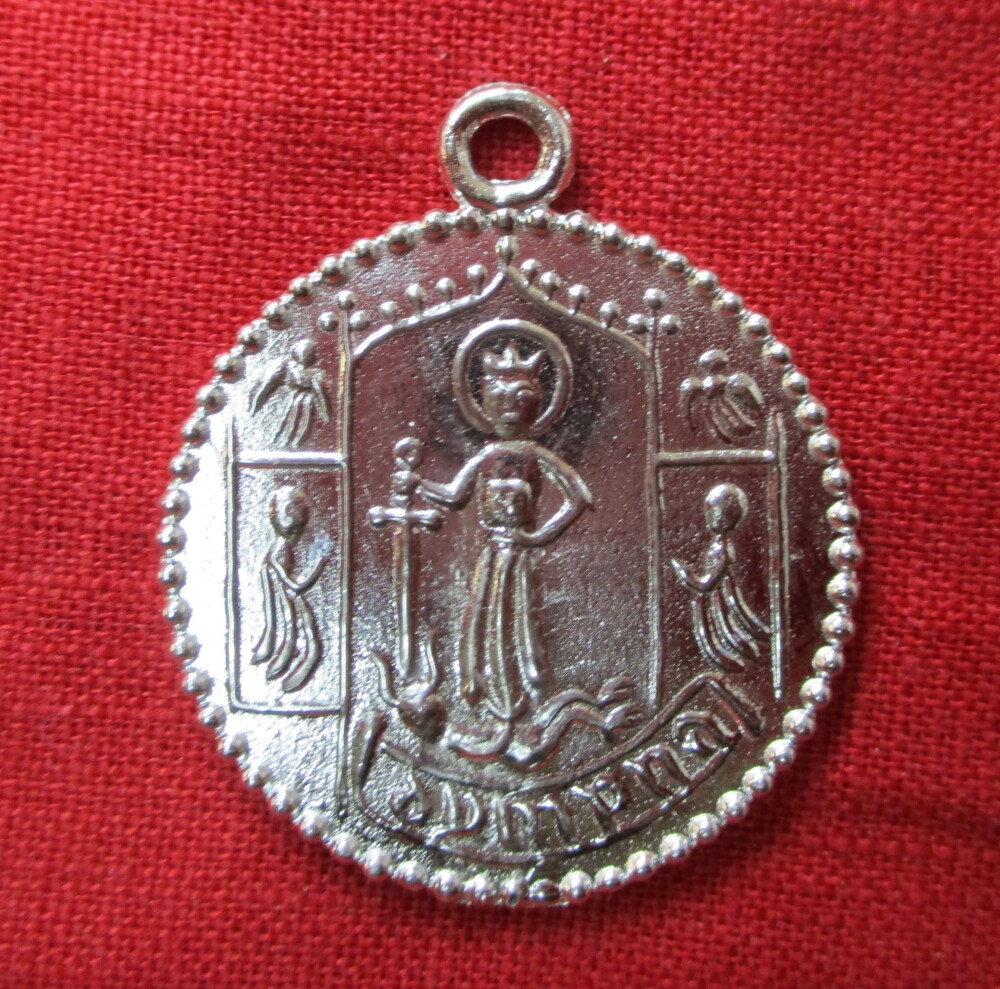
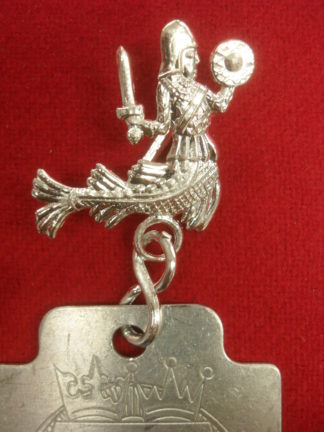
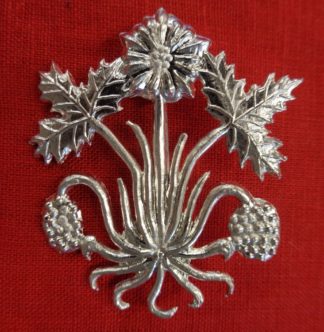
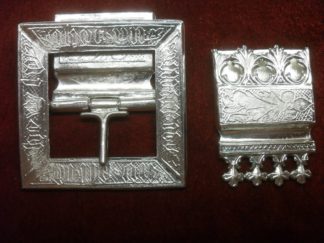
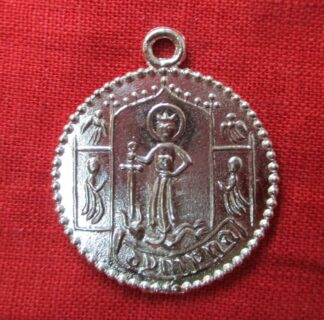
Reviews
There are no reviews yet.